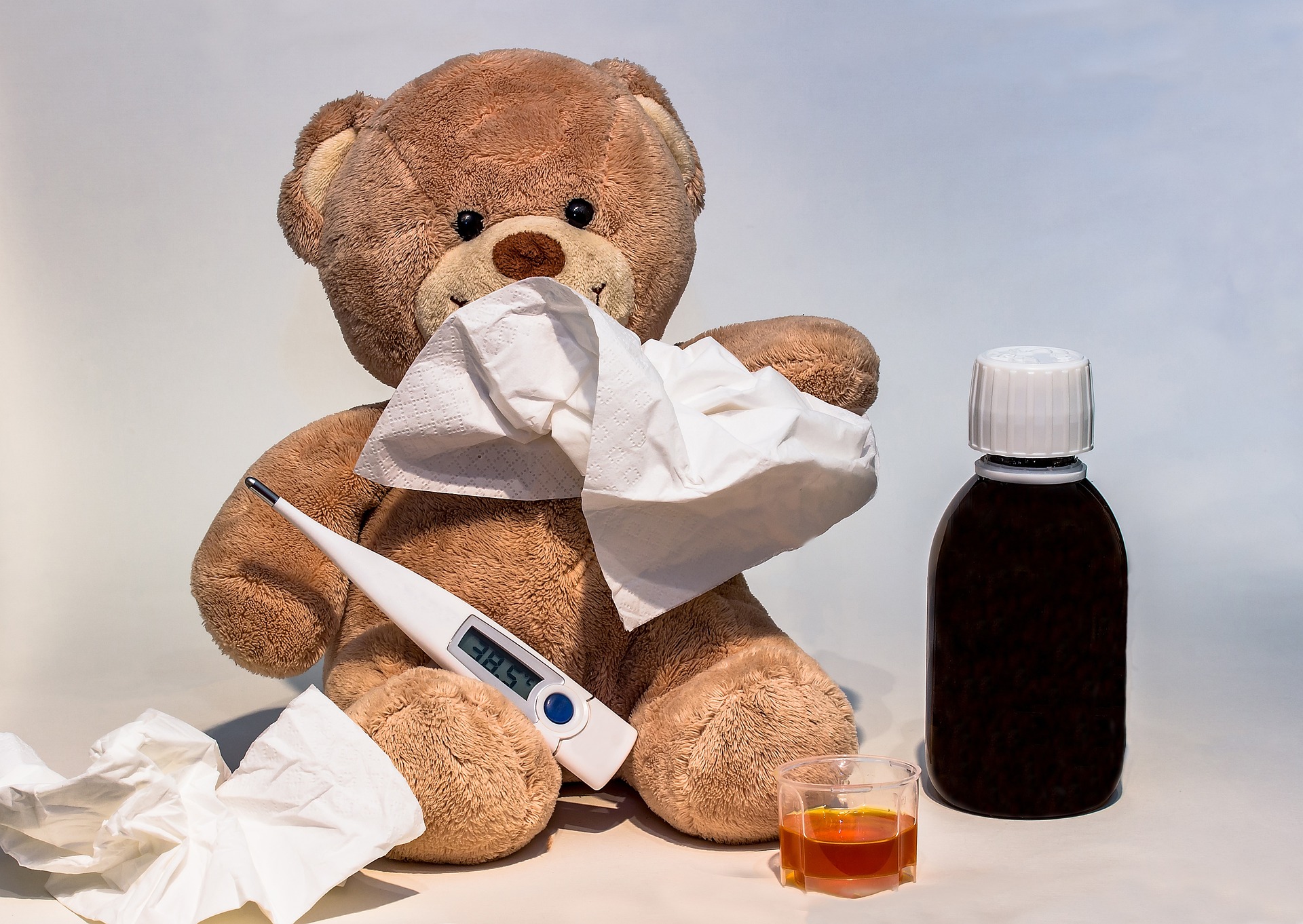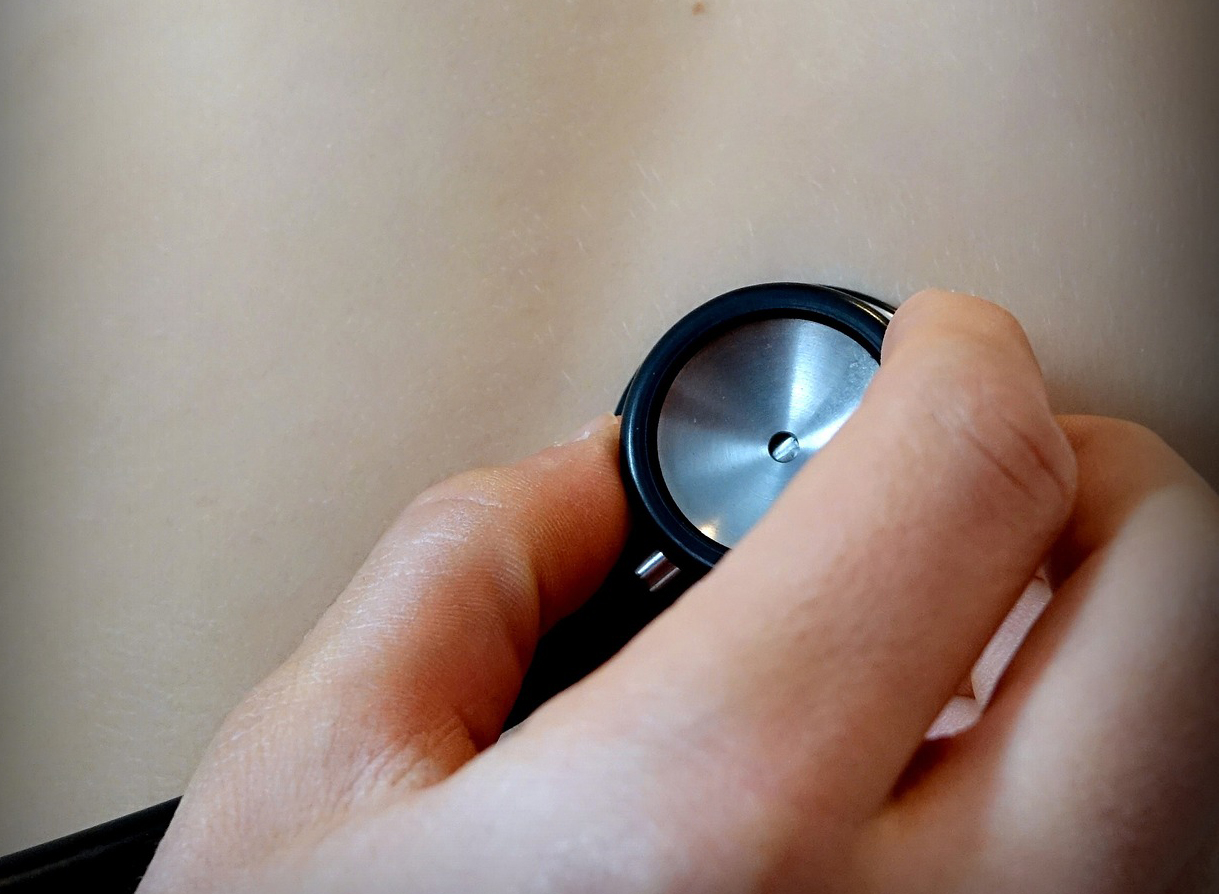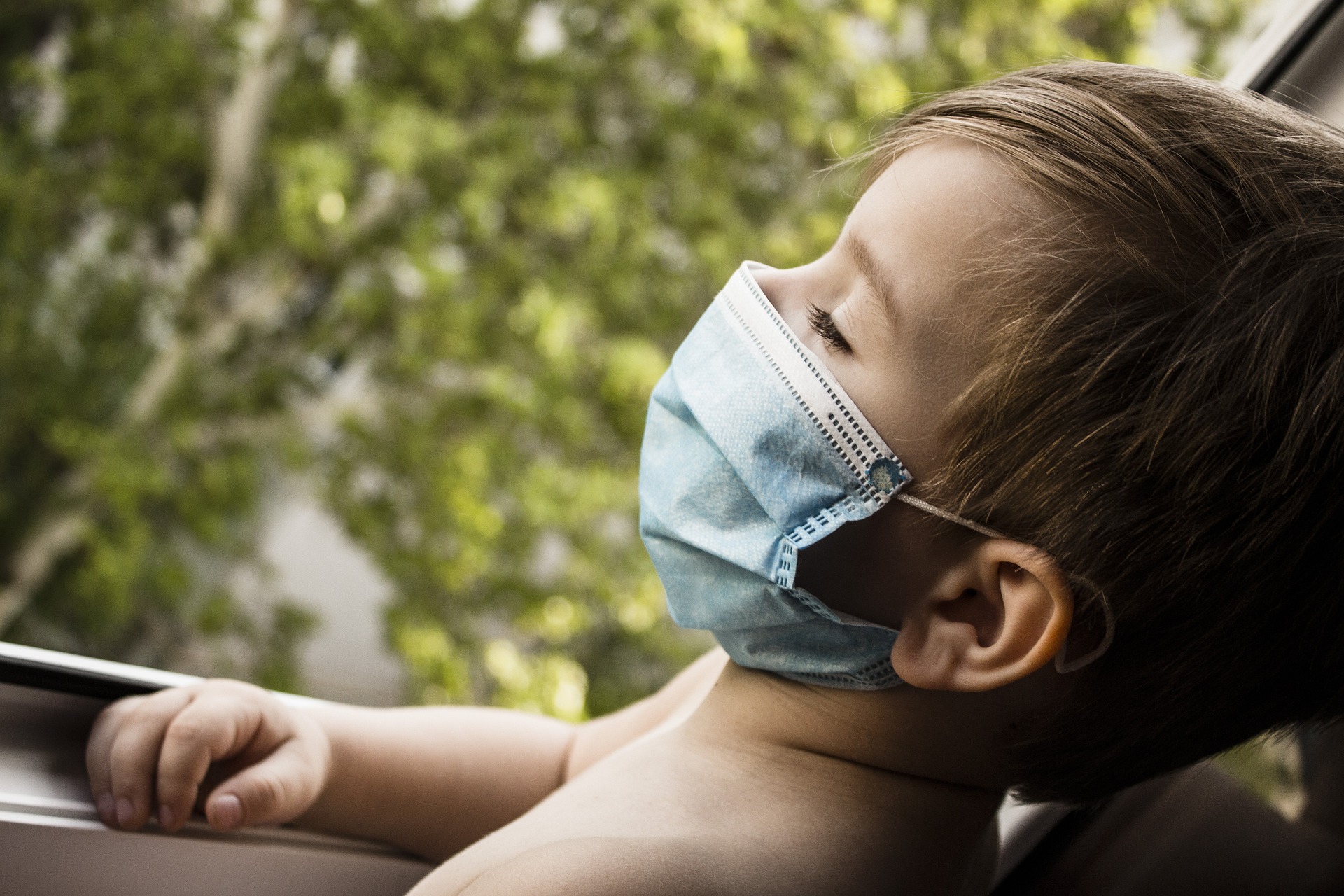Urgent Care
Diagnosis, treatment, and services for your everyday medical needs such as flu shots and lab work.

All kids get a fever at some point or another. This may sound like a bad thing, but it’s good because it can help your child’s immune system fight the infection they are struggling with. Still, it’s important to make sure your son or daughter receives the proper treatment and care necessary to make a full recovery. Whether you’re an adult or a child, fevers are brutal to deal with, but fortunately, there are plenty of ways to avoid, treat, and prevent them!
We all have been with a person who is sick and asks to feel their head, checking to see if they feel warm. This is a common method to see if someone is “burning” up and has a fever. However, for it to actually be a fever, the body’s temperature must be 100.4°F (38°C) or higher. The various and most accurate ways of measuring a temperature are rectal, armpit, ear, forehead, and mouth. Adults sometimes get a slightly different number, so the number that means a child has a fever is a little different too.
Other signs that your child might be suffering from a fever would be having chills, cold sweats, flushed skin, above-average temperature, or acting differently. Due to the discomfort, they are feeling your child may become fussy or cranky.
Typically, fevers in kids are caused by an infection. The cool thing is that a fever will help the body by stimulating the immune system to fight the infection. Healthcare experts also believe the higher the temperature, the harder it will be for germs to grow. A couple of other reasons kids may suffer from fevers would be due to immunizations, a child who is teething, and believe it or not, overdressing. Infants, more specifically newborns, may get fevers if they’re overdressed, wrapped in a blanket, or a hot environment because they don’t regulate their body temperature as well as older kids.
Treating a fever with medicine isn’t needed if a child is still playing, drinking, and doesn’t have pain. You should supply your child with medicine only when a fever causes them discomfort or prevents them from drinking fluids. It’s worth mentioning that when your child does have a fever, keep an eye on them, help them to rest, and keep offering fluids. This is so they can make up for the fluids they lose from sweating. Oral rehydration solutions like Pedialyte, are a good choice. You also can give water, soup, ice pops, and flavored gelatin. Avoid drinks with caffeine, including colas and tea, which can make dehydration worse by making kids pee more often. Let kids eat what they want (in reasonable amounts), but don’t force it if they don’t feel like eating much!
Making sure your child stays hydrated isn’t the only thing you can do. Having them wear lightweight clothing and stay covered with a light sheet or blanket can also help. It’s important to remember to keep the room at a comfortable temperature and make sure they get plenty of rest. Staying in bed all day isn’t necessary, but a sick child should take it easy.
The temperature that should trigger a call to your child’s healthcare provider depends on their age, the illness, and whether they have other symptoms. In general, call their provider if your child is younger than 3 months old with a rectal temperature of 100.4°F (38°C) or higher, 3 months or older with a temperature higher than 102.2°F (39°C), or at any age but has a health problem like cancer or sickle cell disease and has a fever.
In most cases, your child will be back to their old self within a couple of days. For older babies and kids, the way they act is more important than the reading on your thermometer or what symptoms they’re exhibiting. Don’t be alarmed if your son or daughter is a bit cranky when they have a fever. This is completely normal and should be anticipated, but if you are ever in doubt about what to do, or if your child is acting ill in a way that concerns you, the experts at Chai Care will happily take a look!
* Legal disclaimer: The content of this article and the entire Chai Care blog is for educational purposes only; it does NOT constitute medical advice and must not be considered as such. Please consult a medical professional regarding any symptoms or health concerns you or your loved ones.
Jan 03, 2023
Pneumonia and Bronchitis are two illnesses that can have many harmful effects. Unfortunately, when children contract it, they experience excoriating pain and if gone untreated, there can be grave consequences. It is important to stay informed and understand the signs of these viruses and illnesses to prevent your child from having any long-term consequences.
Pneumonia is a form of acute respiratory infection that affects the lungs. The lungs are made up of small sacs called alveoli, which fill with air when a healthy person breathes. When an individual has pneumonia, the alveoli are filled with pus and fluid, which makes breathing painful and limits oxygen intake.
Pneumonia is the single largest infectious cause of death in children worldwide. Pneumonia affects children and families everywhere and even though we have amazing healthcare options in our country, our youth is still very much at risk.
The presenting features of viral and bacterial pneumonia are similar. However, the symptoms of viral pneumonia may be more numerous than the symptoms of bacterial pneumonia. In children under 5 years of age who have a cough and/or difficulty breathing, with or without fever, pneumonia is diagnosed by the presence of either fast breathing or lower chest wall indrawing where their chest moves in or retracts during inhalation (in a healthy person, the chest expands during inhalation). Wheezing is more common in viral infections.
There are several ways Pneumonia can spread. The viruses and bacteria that are commonly found in a child’s nose or throat can infect the lungs if they are inhaled. They may also spread via air-borne droplets from a cough or sneeze. In addition, pneumonia may spread through blood, especially during and shortly after birth. More research needs to be done on the different pathogens causing pneumonia and the ways they are transmitted, as this is of critical importance for treatment and prevention.
While most healthy children can fight the infection with their natural defenses, children whose immune systems are compromised are at higher risk of developing pneumonia. A child’s immune system may be weakened by malnutrition or undernourishment, especially in infants who are not exclusively breastfed. Pre-existing illnesses, such as symptomatic HIV infections and measles, also increase a child’s risk of contracting pneumonia.
Pneumonia is caused by several infectious agents, including viruses, bacteria, and fungi. The most common is streptococcus which is the most common cause of bacterial pneumonia in children. Hemophilus influenza is the second most common cause of bacterial pneumonia, followed by the respiratory syncytial virus which is the most common viral cause of pneumonia.
Preventing pneumonia in children is an essential component of a strategy to reduce child mortality. Immunization against Hib, pneumococcus, measles, and whooping cough (pertussis) is the most effective way to prevent pneumonia. Adequate nutrition is key to improving children’s natural defenses, starting with exclusive breastfeeding for the first 6 months of life. In addition to being effective in preventing pneumonia, it also helps to reduce the length of the illness if a child does become ill. Addressing environmental factors such as indoor air pollution (by providing affordable clean indoor stoves, for example) and encouraging good hygiene in crowded homes also reduces the number of children who fall ill with pneumonia. In children infected with HIV, the antibiotic cotrimoxazole is given daily to decrease the risk of contracting pneumonia.
If your child’s symptoms are getting worse if he/she has a fever lasting for a few days, breathing problems, trouble drinking fluids, and new symptoms such as neck stiffness or swollen joints, it is time to call your child’s healthcare provider.
Now, it’s time to talk about Bronchitis. What is acute bronchitis in children? Bronchitis is an inflammation of the large breathing tubes in the lungs. The illness can be short-term (acute) or long-term (chronic). Acute bronchitis means that the symptoms often develop quickly and don’t last long. Most cases are mild.
Acute bronchitis is most often caused by a viral infection. It may also be caused by bacteria or things such as dust, allergens, strong fumes, or tobacco smoke. In children, the most common cause of acute bronchitis is a virus. The illness may develop after a cold or other viral infection in the nose, mouth, or throat (upper respiratory tract). Such illnesses can spread easily from direct contact with a person who is sick. Children that are more at risk for acute bronchitis are kids that deal with chronic sinusitis, allergies, asthma, enlarged tonsils and adenoids, and exposure to secondhand smoke.
Your child’s healthcare provider can often diagnose acute bronchitis with a health history and physical exam. In some cases, your child may need tests to rule out other health problems, such as pneumonia or asthma. These tests may include chest X-rays, pulse oximetry, or sputum and nasal discharge samples.
Treatment will vary depending on your child’s symptoms, age, and general health. It will also depend on how severe the condition is. In nearly all cases, antibiotics should not be used to treat acute bronchitis. That’s because most infections are caused by viruses. Even children who have been coughing for longer than 8 to 10 days often don’t need antibiotics.
It is important to talk with your child’s healthcare provider before giving over-the-counter cough and cold medicine to your child. Most experts do not recommend giving medication to children younger than four years old because it may cause harmful side effects. For children between ages four and six, only use over-the-counter products when recommended by your child’s healthcare provider. It is also important to note, not to give aspirin or medicine that contains aspirin to a child younger than age nineteen unless directed by your child’s provider. Taking aspirin can put your child at risk for Reye syndrome. This is a rare but very serious disorder. It most often affects the brain and the liver.
At the end of the day, pneumonia and bronchitis are two nasty illnesses that are brutal to deal with, but very much treatable. If your child finds themselves struggling with either one, self-care is an option, but Chai Care would be your best option for treatment because our incredible staff of trained experts will supply them with quality care while offering top-notch advice on how to stay healthy!
* Legal disclaimer: The content of this article and the entire Chai Care blog is for educational purposes only; it does NOT constitute medical advice and must not be considered as such. Please consult a medical professional regarding any symptoms or health concerns you or your loved ones.
Nov 30, 2022
What’s more frightening than watching a child suffer?
If you are having a hard time answering that question, it’s because you’re a good person. As adults, we have a moral obligation to protect our youth and help them in every way we can, but we can only do so much. Unfortunately, unexpected accidents and illnesses do happen but in today’s world, we can easily access proactive information on how best to live our lives so we can educate ourselves on the signs, symptoms, and ways to avoid these medical mishaps.
There are many diseases, illnesses, and viruses that are exclusive to children, but Febrile seizures are one that has been happening more frequently these days. Don’t know what a Febrile Seizure is? Chai Care is here to help.
Essentially, a febrile seizure is a convulsion that a child has when they have a nasty fever. They typically occur on the first day of the fever and generally last only a few minutes. If the seizure lasts longer than five minutes and the child struggles to breathe you should seek medical attention because it has the potential of leading to something more harmful. The good news is most medical professionals would agree that many cases are overall harmless, but that doesn’t mean you should take it lightly.
It’s important to note that if you are in the presence of a child having one of these seizures, stay calm and do your best to comfort them to the best of your ability. It may be difficult to not show panic, especially if this is your child or loved one, but if you show distress and terror, this could heighten the seizure.
Typically, when a child is undergoing one of these seizures they will shake and at times lose consciousness, however, there are times when the person may become stiff and only twitch in one area of the body.
If the child has over a 100-degree fever, vomits, has breathing problems, loses consciousness, experiences extreme sleepiness, or their arms and legs shake or jerk, they are most likely experiencing a Febrile Seizure. But there are two kinds: Simple Febrile Seizures and Complex Febrile Seizures.
A simple one would be if the child has a seizure for only a few seconds and it would not happen again in a 24-hour period.
A Complex Febrile Seizure can last longer than fifteen minutes and would occur more than once in a single day. If this is the case, seek medical attention ASAP because it is an emergency.
Whether it be a simple or complex Febrile Seizure, after it’s over, you should consult a medical professional, because it can be a sign of something worse and it never hurts to play things safe, especially when it comes to children.
Fortunately, Chai Care is a reliable urgent care facility that will always be here when you need us most. Our trained staff will do their best to offer you top-notch treatment and inform you of ways how you and your family can stay healthy!
* Legal disclaimer: The content of this article and the entire Chai Care blog is for educational purposes only; it does NOT constitute medical advice and must not be considered as such. Please consult a medical professional regarding any symptoms or health concerns you or your loved ones.